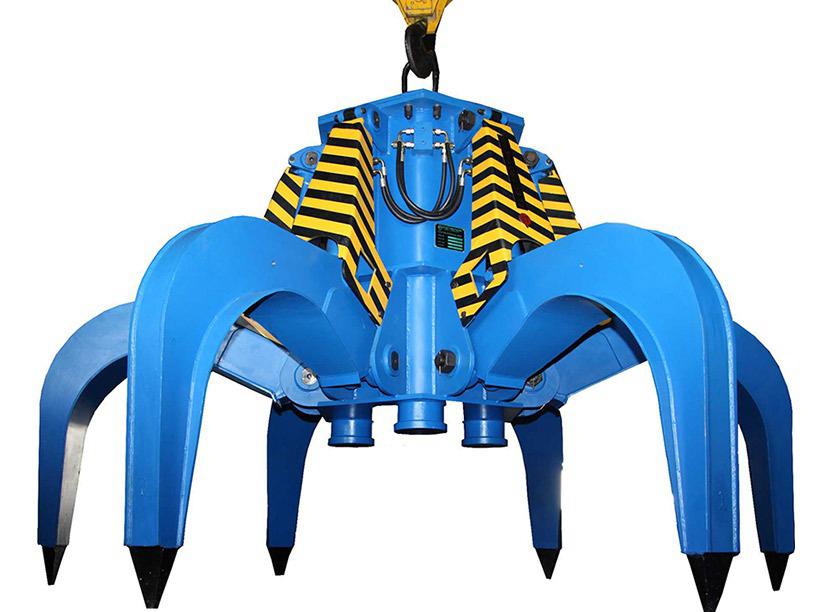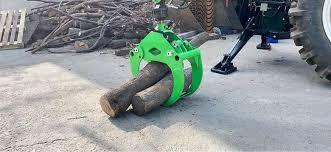Hydraulic Grabber Cylinder
Hydraulic Grabs and Hydraulic Grabber Cylinders: Components, Mechanism, and Applications
Hydraulic grabs are specialized tools designed for gripping, lifting, and moving large or irregularly shaped materials such as scrap metal, rocks, and demolition debris. These tools are essential in industries like recycling, construction, demolition, and agriculture, offering precise handling of bulk materials. At the heart of the hydraulic grab system lies the hydraulic grabber cylinder, which provides the gripping force necessary for efficient operation. This article explores the components, working mechanisms, and applications of hydraulic grabs and their cylinders.
What is a Hydraulic Grab?
A hydraulic grab, as the name suggests, is used for "grabbing" materials and transferring or sorting them from one location to another. These versatile tools are widely used across industries for tasks such as:
- Sorting demolition waste and loading it into transport vehicles.
- Processing and handling recycled materials.
- Wood recycling and forestry tasks.
- Agricultural applications, such as moving hay bales or crops.
Hydraulic grabs are compatible with machines ranging from 2 to 60 tons, such as cranes, excavators, and loaders.
Key Components of a Hydraulic Grab
Grab Claws
The grab consists of multiple claws, each driven by a double-acting hydraulic cylinder.
The claws are designed for high gripping force, ideal for handling non-symmetrical and loose materials.
Hydraulic Grabber Cylinder
This is the core component responsible for opening and closing the grab claws.
The cylinder is powered by pressurized hydraulic fluid, enabling precise control of the grab's movement.
High-Strength Construction
The structural parts of the grab are made from high-tensile-strength steel for durability.
Components that come into direct contact with materials are built with wear-resistant special steel to ensure longevity.
Pins and Bushings
Hardened steel pins and specialized bushings are used at all junction points to handle radial and axial loads effectively.
Protective Covers
Cylinders, hydraulic circuits, and filter assemblies are shielded by robust protective covers to allow the grab to operate reliably in harsh environments.
Working Mechanism of Hydraulic Grabber Cylinders
The hydraulic grabber cylinder is a double-acting cylinder designed to provide powerful gripping and lifting capabilities. Here’s how it functions:
Hydraulic Fluid Activation
Pressurized hydraulic fluid is directed into one side of the cylinder, causing the piston to move. This action forces the claws to close and securely grip the material.
Double-Acting Design
In a double-acting system, hydraulic fluid can flow into either side of the cylinder, enabling the claws to open and close as needed.
Gripping Force
The cylinder creates a strong gripping force, ensuring the claws can handle heavy and irregularly shaped loads.
Retraction and Extension
During retraction, hydraulic fluid flows into the opposite chamber of the cylinder, allowing the claws to release the material.
Material Handling Efficiency
The cylinder’s precision control ensures that even loose or asymmetrical materials are securely handled.
Applications of Hydraulic Grabs and Grabber Cylinders
Hydraulic grabs are used in a variety of industries due to their robust design and versatility:
Recycling and Waste Management
Ideal for sorting and processing scrap metal, demolition debris, and other recyclable materials.
Construction and Demolition
Used for handling construction materials and separating demolition waste for disposal or recycling.
Forestry and Wood Recycling
Efficiently processes logs, wood chips, and other forestry materials.
Agriculture
Assists in moving and sorting materials like hay bales, silage, or crops.
Bulk Material Handling
Perfect for industries requiring the transfer of heavy, irregularly shaped materials.
Advantages of Hydraulic Grabs
High Gripping Force:The vertical design and large cylinders provide excellent gripping power.
Durable Construction:Made with wear-resistant and high-strength materials for long-term use.
Independent Claws:Each claw is powered by its hydraulic cylinder, ensuring a strong grip on irregular loads.
Versatile Mounting:Hydraulic grabs can be mounted on various heavy machinery, such as excavators, cranes, and loaders.
Protected Mechanisms:Protective covers safeguard hydraulic circuits and components from damage in harsh working conditions.






